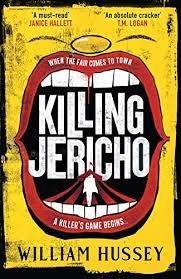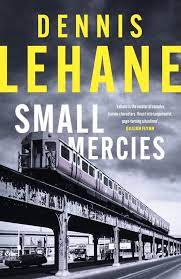Kala,
by Colin Walsh.
Colin Walsh has already made his reputation as a
prize-winning short-story writer: this
is his first novel and he may cover all the bases of a competent thriller, but
it takes an extraordinary talent to elevate efficiency to brilliance, and Colin
Walsh has it in spades.
The reader is spared no mercy as we are subjected to
every good, bad and ugly emotion throughout this story of solid teenage
friendship that has disintegrated into reluctant acquaintance fifteen years
after the disappearance of Kala Lanann, the heart and soul of the little
group. Her boyfriend Joe is now a famous
rock star; her best friend Helen has
returned to Ireland from Canada to attend her father’s forthcoming wedding to
Pauline Lyons, mother of Aidan, Joe’s mate and drummer in their little rock
band, and Mush – Mush is Aidan’s cousin, horribly scarred and doomed to be his
Mam’s assistant in their Cafe in the tourist town of Kinlough till death do
them part. Kala’s staunch-to-the-death
friends haven’t survived well without her, and no-one – NO-ONE, wants to
revisit the last time they saw her: each
of them know that they could have behaved differently. Kala was in trouble; she needed them, and they let her down.
But her body has never been found, so that should surely
mean something, especially to her poor, wheelchair-bound grandmother with whom she lived – until her
bones are discovered on a local building site in a gym bag. Her badly broken skull is on top of the bag,
with a photo of two young girls positioned beneath. Are they the next targets? And why was Kala, a vital, fearless, talented
15 year-old murdered? What did she know
or discover to cause her horrible death, and could her friends have prevented
it?
The nature of friendship casual or deep is relentlessly
explored in this searing exposé
of the corrupt underbelly of a seemingly prosperous and scenic Irish seaside
town: the police control law and order –
but who controls the police? To their
consternation, the broken, wounded adult versions of Kala’s much-loved friends
discover that everything has its
price and for some, it is too high to pay.
With this outstanding debut novel, Colin Walsh proves
that he can carry on admirably the great literary tradition of Irish
storytelling: it’s all wonderful craic
and I can’t wait for the next example of his brilliance. Will he make me laugh
and cry again, and recoil in horror at the cruelty his characters visit upon
each other? I shall be waiting because I
must, but I hope he doesn’t go on his holidays!
SIX STARS.







